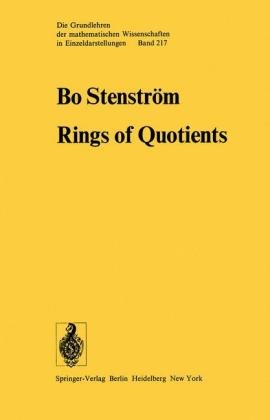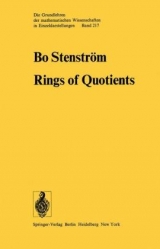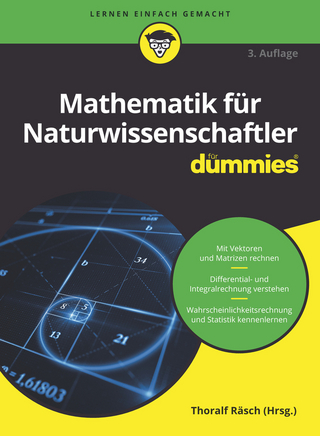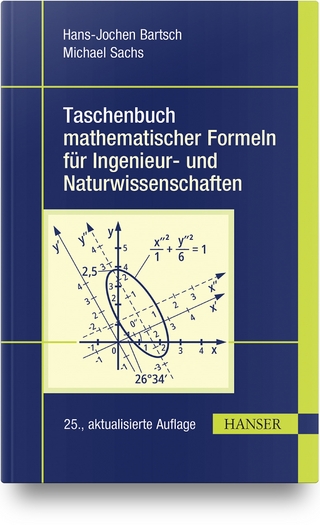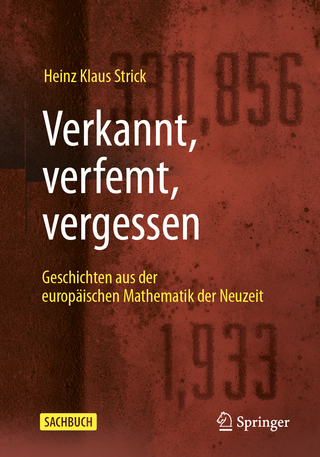Rings of Quotients
Springer Berlin (Verlag)
978-3-540-07117-4 (ISBN)
- Titel ist leider vergriffen;
keine Neuauflage - Artikel merken
Notations and Conventions.- I. Modules.- § 1. Basic Definitions.- § 2. Sums and Products of Modules.- § 3. Finitely Generated Modules and Noetherian Modules.- § 4. Categories and Functors.- § 5. Exactness of Functors between Module Categories.- § 6. Projective and Injective Modules.- § 7. Semi-Simple Modules and Rings.- § 8. Tensor Products.- § 9. Bimodules.- § 10. Flat Modules.- § 11. Pure Submodules.- § 12. Regular Rings.- § 13. Coherent Rings.- Exercises.- II. Rings of Fractions.- § 1. The Ring of Fractions.- § 2. Orders in a Semi-Simple Ring.- § 3. Modules of Fractions.- § 4. Invertible Ideals and Hereditary Orders.- Exercises.- III. Modular Lattices.- § 1. Lattices.- § 2. Modularity.- § 3. Lattices with Chain Condition.- § 4. Distributive Lattices.- § 5. Continuous Lattices.- § 6. Pseudo-Complemented Lattices.- § 7. Closure Operators.- § 8. Galois Connections.- Exercises.- IV. Abelian Categories.- § 1. Equivalence of Categories.- § 2. Kernels and Cokernels.- § 3. Products and Coproducts.- § 4. Abelian Categories.- § 5. Pullbacks and Pushouts.- § 6. Generators and Cogenerators.- § 7. Functor Categories.- § 8. Limits and Colimits.- § 9. Adjoint Functors.- § 10. Morita Equivalence.- Exercises.- V. Grothendieck Categories.- § 1. Exactness of Direct Limits.- § 2. Injective Envelopes.- § 3. Finitely Generated Objects.- § 4. Locally Noetherian Categories.- § 5. The Krull-Remak-Schmidt-Azumaya Theorem.- § 6. Spectral Categories.- § 7. The Spectral Category of a Grothendieck Category.- Exercises.- VI. Torsion Theory.- § 1. Preradicals.- § 2. Torsion Theories.- § 3. Hereditary Torsion Theories.- § 4. Linear Topologies.- § 5. Gabriel Topologies.- § 6. Examples of Gabriel Topologies.- § 7. Stable Torsion.- § 8. TTF-Classes.- § 9. ?-Divisible Modules.- Exercises.- VII. Hereditary Torsion Theories for Noetherian Rings.- § 1. Associated Prime Ideals.- § 2. Fully Bounded Noetherian Rings.- § 3. Topologies for a Fully Bounded Noetherian Ring.- § 4. Artin-Rees Modules and Stable Topologies.- § 5. Auxiliary Results on Commutative Localization.- § 6. The Topologies ?Mn for a Commutative Noetherian Ring.- Exercises.- VIII. Simple Torsion Theories.- § 1. The Jacobson Radical and Artinian Rings.- § 2. Semi-Artinian Modules and Rings.- § 3. Simple Torsion Theories.- § 4. Semi-Perfect Rings.- § 5. Perfect Rings.- § 6. Hereditary Torsion Theories for a Perfect Ring.- Exercises.- IX. Rings and Modules of Quotients.- § 1. Construction of Modules of Quotients.- § 2. ?-Injective Envelopes.- § 3. The Ring of Quotients is a Bicommutator.- § 4. The Lattice of Saturated Submodules.- § 5. ?-Invertible Ideals.- Exercises.- X. The Category of Modules of Quotients.- § 1. Giraud Subcategories.- § 2. Gabriel Topologies and Giraud Subcategories.- § 3. Rings of Quotients of Morita Equivalent Rings.- § 4. Representation of Grothendieck Categories.- Exercises.- XI. Perfect Localizations.- § 1. Epimorphisms of Rings.- § 2. Flat Epimorphisms of Rings.- § 3. Perfect Gabriel Topologies.- § 4. The Maximal Flat Epimorphic Ring of Quotients.- § 5. The Maximal Ring of Quotients as a Perfect Localization.- § 6. 1-Topologies and Rings of Fractions.- § 7. Finite Localizations.- § 8. The Endomorphism Ring of a Finitely Generated Projective Module.- Exercises.- XII. The Maximal Ring of Quotients of a Non-Singular Ring.- § 1. Standard Representation of Spectral Categories.- § 2. The Maximal Ring of Quotients.- § 3. The Maximal Ring of Quotients of a Boolean Ring.- § 4. The Lattice of Essentially Closed Ideals.- § 5. The Maximal Ring of Quotients of a Reduced Ring.- § 6. Flatness of the Maximal Ring of Quotients.- § 7. Imbedding Non-Singular Modules in Free Modules.- Exercises.- XIII. Finiteness Conditions on Mod-(A, ?).- § 1. Compact Lattices of Saturated Submodules.- § 2. ?-Noetherian Rings.- § 3. The Goldie Topology.- § 4. P-Noetherian Rings.- § 5. The Canonical Topology of a Krull Domain.- Exercises.- XIV. Self-Injective Rings.- § 1. The Endomorphism Ring of an Injective Module.- § 2. Self-Injective Rings and Annihilator Conditions.- § 3. Quasi-Frobenius Rings.- § 4. Self-Injective Maximal Rings of Quotients.- Exercises.- XV. Classical Rings of Quotients.- § 1. Semi-Prime Ideals and the Prime Radical.- § 2. Rings of Quotients of Quotient Rings.- § 3. Orders in a Semi-Primary Ring.- § 4. Noetherian Orders in an Artinian Ring.- § 5. Orders in Self-Injective Rings.- § 6. Rings of Quotients of Group Algebras.- Exercises.
| Reihe/Serie | Grundlehren der mathematischen Wissenschaften ; 217 |
|---|---|
| Zusatzinfo | 309 p. |
| Verlagsort | Berlin |
| Sprache | englisch |
| Gewicht | 660 g |
| Themenwelt | Mathematik / Informatik ► Mathematik ► Allgemeines / Lexika |
| Schlagworte | Adjoint functor • Algebra • colimit • Coproduct • Prime • Quotientenring • Rings |
| ISBN-10 | 3-540-07117-2 / 3540071172 |
| ISBN-13 | 978-3-540-07117-4 / 9783540071174 |
| Zustand | Neuware |
| Informationen gemäß Produktsicherheitsverordnung (GPSR) | |
| Haben Sie eine Frage zum Produkt? |
aus dem Bereich
